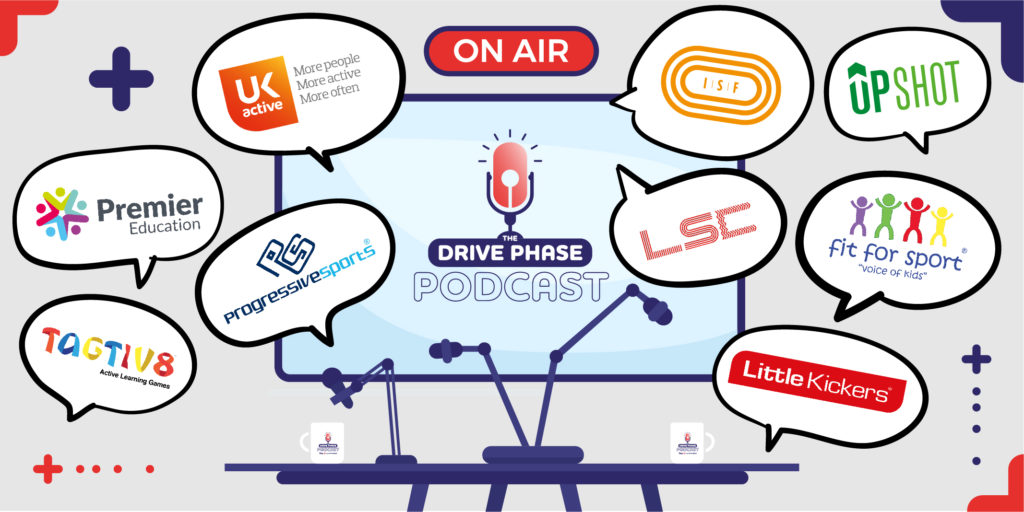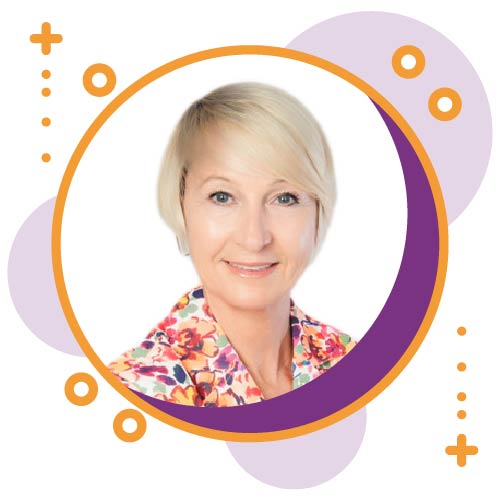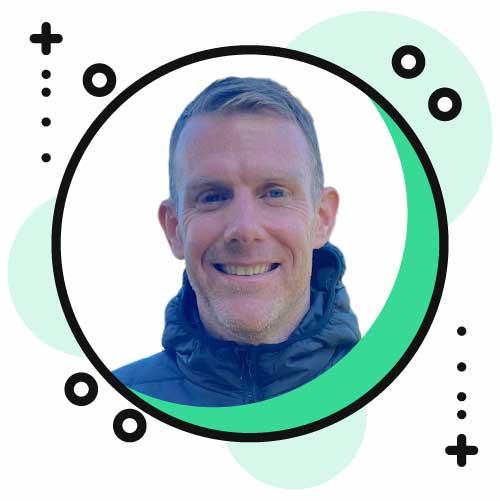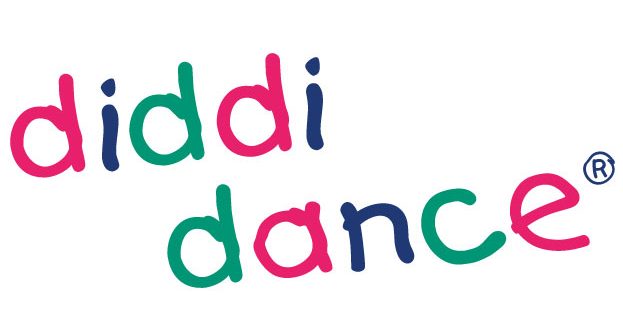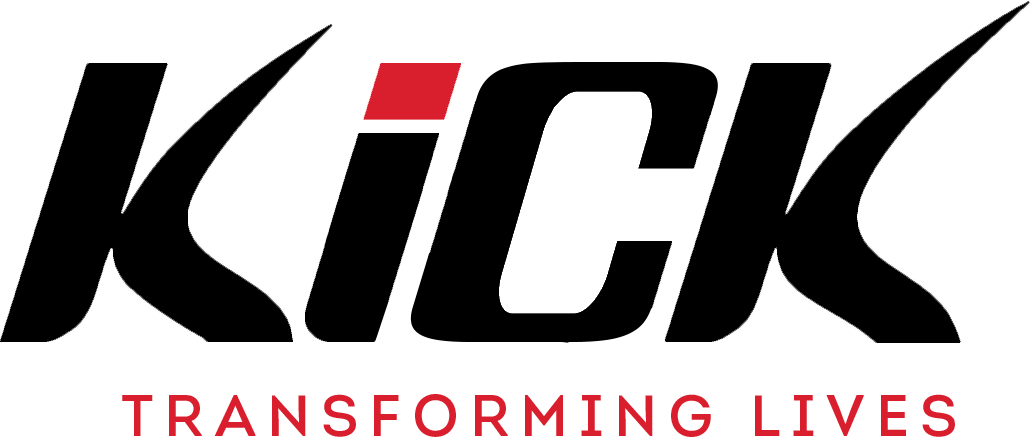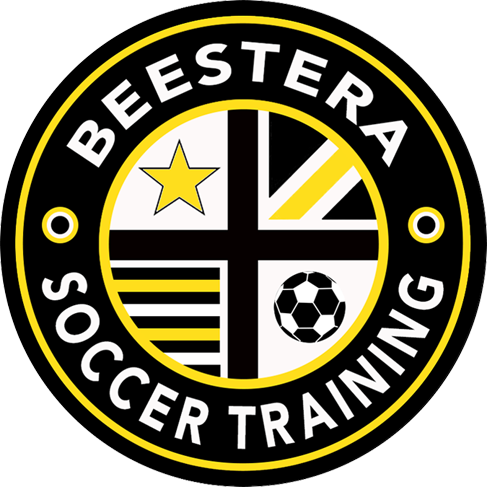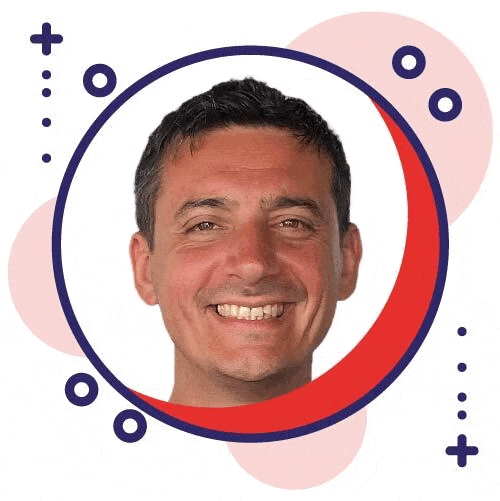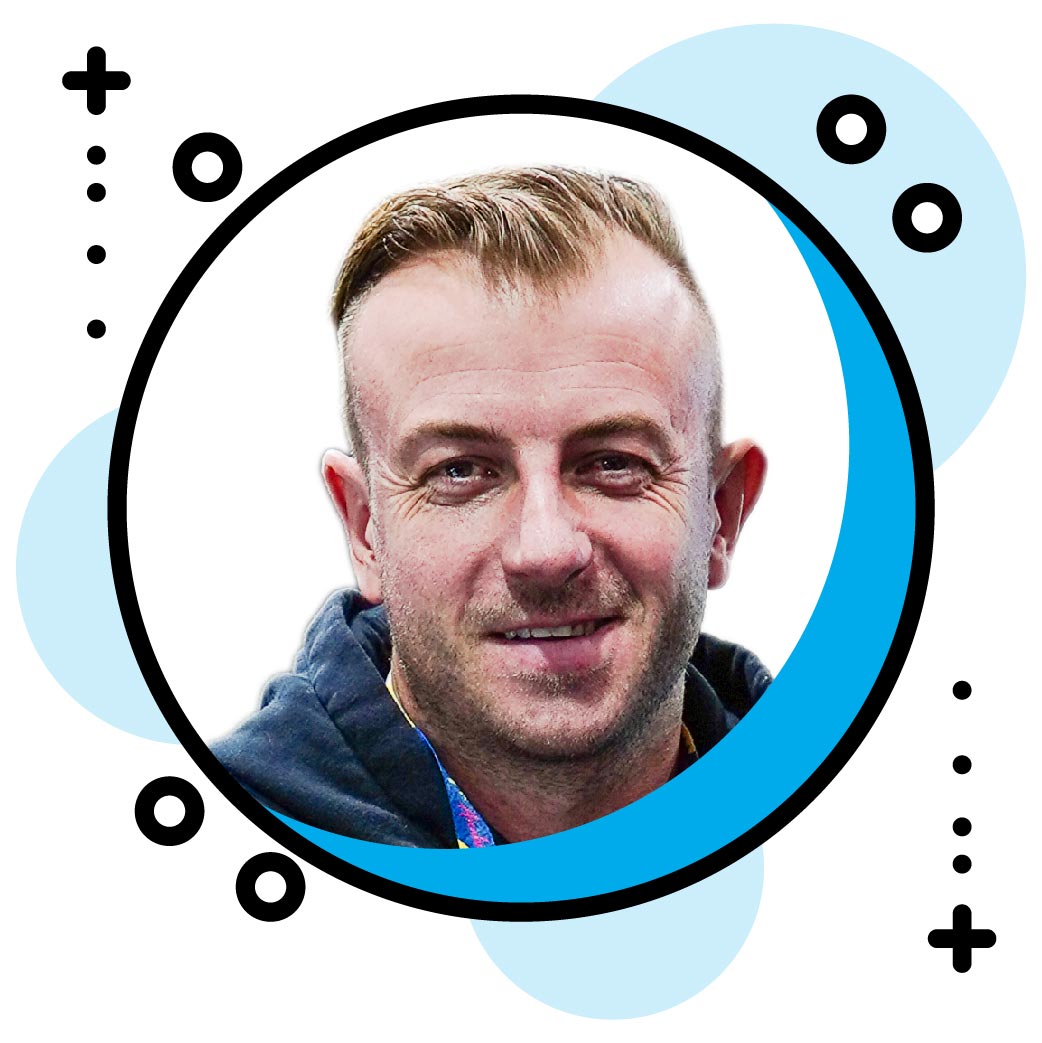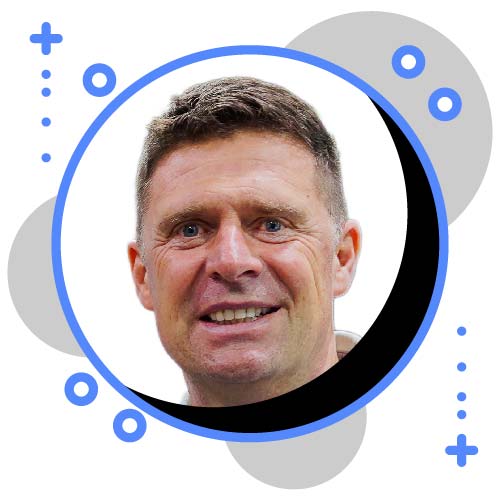James Moore 0:06
From Coordinate Sport, it’s the Drive Phase. A show about sports founders, leaders and experts, and the stories behind their business journeys. We brought you this podcast initially because we feel now, more than ever, learning from the industry’s top performers is vital. At a time where the global sports coaching market has the potential to grow by $4 billion over the next four years, we wanted to give our listeners a first-mover advantage, giving you the opportunity to create a community; driving forward an industry with so many benefits from the services you provide. Since we launched, we’ve been privileged to talk to and learn from some of the most inspirational and pioneering leaders in the industry. So being that it’s the end of the year, we’ve taken the opportunity to look back at our past conversations, drawing out the most powerful messages and insights. Our guests have passed on their experiences. So you can fast track your growth, helping to set the stage and grasp all the opportunities available to you from 2021 and beyond. So welcome to this week’s episode. It’s the last of this year, but it’s the first of our lessons from leaders wrap up episodes.
We are all in the sector to make an impact. In the UK, we are in the midst of two huge crises. We all knew about the childhood obesity epidemic, but COVID-19 has shone a light on the holiday hunger that many children are experiencing. Two issues that, on the face of it, seemed like they shouldn’t exist in the same country. Especially one of the wealthiest in the world. Rob Brown, Dean Horridge and Bryn Llewellyn share their thoughts on the subject.
Dean Horridge 1:42
When I first started, and we had quite a few children in that school that were a little bit overweight. Two years later, we didn’t have one child that was overweight, forget obese, overweight. Why was that?
James Moore 1:54
Sorry that was in two years?
Dean Horridge 1:56
Yeah, two years. Every single child in that school did a minimum of one hour of activity a day. So all the children had to sign up for an after school club three times a week, and all had to be active at lunchtime. It’s not rocket science. The recommendation, the chief medical officer guidelines are one hour a day of 60 minutes of moderate to vigorous activity. Now, the definition of moderate to vigorous, let’s keep it simple. You’re out of breath, and you’re sweating. Do you know how many children go out for that wonderful time of lunchtime activity in school and sit down and read a book? Or sit down and have a bag of crisps, or not even move? And we have an environment where we ask children to get up in the morning and have breakfast. Most get driven to school or don’t really do much walking. They go into school, and they’re asked to sit down and listen. They go out to the playground, and they’re told not to run or use the skipping ropes in case someone gets hurt. And please don’t use a football, god forbid, someone may get hit. Then they’re asked to sit down and have lunch. After school, they do their homework, and sit down and chill out on their games, and go to bed. And we wonder why we have obesity issues? We’ve got to get the kids moving. We have an hour a day recommendation, yet the minimum that schools have to deliver is two hours a week. I don’t know about you James, but my maths has always been quite strong. Five hours recommendation in a school week, and only having to deliver two, you’re setting yourself up for failure. So this whole perception around getting kids active needs to be addressed in all schools that actually your job is to get the children active for an hour a day. Yes, 30 minutes are in school, 30 minutes are outside of school. But you know what? Schools provide both environments, as I did 29 years ago, which was in school activities everybody’s active. Including in class, stand up and do some fun activities. But also after school, every child should have the ability to do an after school club. Unfortunately, we don’t have that in school settings because there’s a charge to it, and many parents like mine when I was a child could not afford it.
James Moore 4:05
Yeah, and I guess going back to your childhood and probably mine in terms of society as a whole, certain things that we could do as kids you generally can’t do now. Like you said, people getting dropped off at school. I used to walk to school when I was 7-9 years old and play out in the street. Or cut a hole in the tennis court walls, and that type of stuff seems to be disappearing. Yeah, it’s becoming more structured, and we’ve got great coaches working in the community, but the day to day more active lifestyle seems to be diminishing.
Dean Horridge 4:36
Well, there is no fun, and there’s no time in school lunchtimes in many schools, not all schools but many schools, where the children could just let rip, go wild. If I didn’t go running around for a half-hour by lunchtime at school, I’d be off a roof. And many children don’t, and then we tell them they’re naughty, right? These children are misbehaving. No, no, no, they’re just like a puppy in a cage. You have to let children run and exert that energy, which is built up from being sedentary. And I think the other environment that we have to be very careful of is homework. I’ve got three young children, but I’m going back a few years when my children were seven and eight. They used to come home from a whole day at school, getting home at 4:00 – 4:30 and sit there and do two hours of homework, which is just insane. Because first of all, some of the statistics around additional learning doesn’t come into play because the children are just whacked by then. What is more interesting is how much children learn better when they’re active. And somehow, as a sector, we have to find the balance to go back on this education establishment to say active children learn better. Active children behave better, active children sleep better, active children eat better, I can go on. Yeah, we have a lot of inactive children around the UK.
Bryn Llewellyn 5:59
I know it’s very crude to say that, but it’s true. You know, these kids who have access to gardens, bouncing around with rolled-up socks, etc. But for every child who was doing that, there were one or two children who weren’t doing anything. And, you know, Joe Wicks, bless him, he managed to get quite a lot of kids and families active and off their backsides and their sofas. And I know he came in for a lot of criticism. He’s not the nation’s PE teacher, it was a series of high-intensity interval training sessions, but at least he talked about it in terms of the emotional context and the nutritional context as well. So yes, he came in for a lot of criticism, and he made a lot of money on the back of it, but he did actually start to change behaviours. So I’ll tip my hat to him there. Obviously, we have to convince teachers and school leaders that there are benefits to physically active learning.
James Moore 6:59
Do you think that’s more difficult now, or do you think that’s getting easier over time?
Bryn Llewellyn 7:04
I think there is more awareness now than ever before, looking at social media and the work of Dr Andy Daly Smith and other organisations and partners with the Creating Active Schools framework. I think more people are buying into that process now than ever before. I am concerned by Boris Johnson as he keeps talking about levelling things up. I would still harken back to the lack of a level playing field. So, three years ago, I was invited down to DFE to talk about Tagtiv8 and that initial round of research, and the guys at DFE said they really got it, but they couldn’t share it and celebrate it because everything had to go through either AFPE, Sport England, or Youth Sport Trust. Everything has to go through them. But ultimately, they’ve got their own products that they have to put out, so I know that Youth Sport Trust, through their School Games organisers, they’ve got a massive outreach. But ultimately, they’re just sharing their preferred platforms and programmes. So I would say, yeah, that’s a major challenge.
Rob Brown 8:27
I’m not going to sit here and tell you that I’m going to be able to fix childhood obesity. Many people have tried, and obviously, we’re not doing a fantastic job right now. We are trying, and I don’t think it’s going to be a quick fix. But one of the things I would say is I think it’s time we started to let the people who have a real passion and love for sports and physical activity take care of the delivery of PE. Because often PE, especially in primary schools, gets left to class teachers who might not necessarily have a keen interest in sport. So we need to let those people who’ve got a passion for helping people get fit. We need to start improving that aspect of the delivery of physical education, I would say.
James Moore 9:23
Data is key in all industries, but when we want to prove that what we do is creating real change, having the systems in place to collect and evaluate participant data is essential. Preeti Shetty gives us a real insight into the need for culture change in our sector to ensure all organisations are able to evidence the impact of their programmes and services.
Preeti Shetty 9:46
We’ve come a long way. The third sector, in general, has come a long way. When I first started, I would talk about the impact of data, and either people weren’t interested or were a bit scared by it. Back then, digital meant a website and social. And that’s not the digital I’m talking about. Those are very important things, but I think most organisations are quite comfortable with having a website and doing social, that is not the issue. When we talk about digital transformation it’s your systems, your data. What we’re talking about here is what are the efficiencies operationally that you can have from where you start to when you finish? Where is your data going? What is it telling you? How is it informing future decision making? What do you know about your beneficiaries? I think that is something the sector has been a little bit slow to embrace. This might be a little bit of a stereotype, with sports especially but also non-sport, it is mostly volunteer lead. Coaches love what they do, but they don’t like admin. They don’t like systems. Understandably they don’t want to waste valuable delivery time by going and recording loads of notes, which I understand. I think they’ve been a little bit slow to embrace it. There is still lots of work. When people ask who’s my biggest competitor, I always say it’s Excel, without a doubt. Excel is fantastic, and I’m not saying you should move away from Excel. But I think it’s understanding where you are in your organisation’s journey. I don’t consider myself a tech person. Yeah, I happen to run a tech business, but for me, tech should help us make our lives easier. There are hundreds of things that technology can do, and if it can do it, why would I waste my time trying to do it manually or doing it on Excel? So I think it’s changing, and charities have recognised that we need to embrace digital a lot more. Some things can give us time and can help us do things a lot quicker. I think impact, the sector has got. So much so that it’s become a buzzword, and that’s my concern with this. Every charity seems to have a job going for head of digital transformation. What does that mean? I don’t think the solution is to hire a person to come and fix everything for you.
James Moore 12:34
Because if you’re trying to save people time, then it should be the team that’s already there, right? The system, solving that problem. So it doesn’t mean you only need to bring in the tech guy to solve it. It may be a culture change.
Preeti Shetty 12:48
That’s the word. It’s culture change. Whether you do it by hiring somebody or with your internal team. The fact of the matter is it’s not one person’s job. As an organisation, is your culture data-driven, insight lead? Is it tech-focused? Those things don’t mean you have six systems. It means the way you think as an organisation is putting those things first. It’s saying I’m not going to make big decisions until I look at what the data is telling me. I’m not going to create new programs until I get feedback from my beneficiaries. It’s systems thinking. These things are not necessarily linked to a product. It’s how you deal with the people you work with. I think we’re getting there, but my concern is will this become a tick box exercise? Yes, I have impact. Do you know what I mean? It’s not a one-time thing.
James Moore 13:48
Dean Horridge and David Batch are two of the most successful UK sports entrepreneurs, and they shared their unique business philosophies with us.
Dean Horridge 14:01
It’s almost what I started from day one. I made the decision to start a business, and as everybody does, I did a bit of research and looked at what’s out there. Of course, there was no real sector out there from what I could see. But you had people saying you’ve got to write a business plan, you’ve got to do this, and you strategise here. And then I spent six months doing all these papers and business plans, and they were pretty much dead after four months because the business has changed so much. And I would do them again, and again, and it took me about a year to realise, why am I overcomplicating this? So I came up with the way I employed and trained staff. Textbook style? Well no, our staff are visual and hands-on, and they learn from watching someone like myself engaging the children in those environments. So I came up with this simple, achievable, sustainable approach. There were so many things that I was doing at the early stages that weren’t simple and weren’t achievable for many people. It certainly wasn’t sustainable, and I just thought what a waste of time that was, doing what we’ve just done. Yet not many people can achieve it, and we’re not using it now. So the SaS has stayed with me through life, and actually what I do is use it in my personal life as well. Anything I do with business, or personal, I always think is that simple, is that achievable, and is that sustainable? And if it falls into those three categories, I’m all in. If it doesn’t, it’s time to rethink.
James Moore 15:43
Yes, it’s interesting because I think when starting a business, trying to grow and wanting to be seen as professional, you tend to overthink things a little bit.
Dean Horridge 15:51
So much, and you know what, you listen to a lot of people. Which is good, you learn from people. But a lot of the time you listen to too many people. There are too many options, and it becomes so complicated. Not achievable, and certainly not simple. Which always leads to it not being sustainable. So my advice is those three things are fundamental to any decision you’re going to make, certainly in business.
David Batch 16:18
For me, there are four key pillars of any business. And as I said to you earlier, whatever element of the journey you’re at, I don’t think the challenges change. They just get bigger. And those four challenges are very much strategic, execution, cash, and people. That’s it, that’s all I do. The strategic one is probably not one that you would end up dealing with on a day to day basis. But the other three, certainly, the execution of that strategic plan, making sure that the cash is coming in when it should be coming in. Making sure that is controlled. Look at Dell computers. Michael Dell, I think, brought the company back after originally selling it and spent some three years just working on that one pillar and changed the whole business around. Because they were spending their cash on parts, putting it into production, churning out a computer, giving it to a distributor or shop, and then they were selling it and so the life cycle of their cash or when they spent it to when they got it was in order.
James Moore 16:25
Like six months or something.
David Batch 16:33
Yeah, he changed it around. You go online, press what you want on your computer, you choose it, and then he goes and buys the parts and builds it for you within seven days. And that was a complete flip. So that’s really important. And then, of course, there are the people. Which either as one person, you haven’t got enough, and that’s an issue. Or you get to a point where you have lots of people, and as we’ve seen with COVID, in some cases, managing people through that would have and is one of the biggest challenges because you’re dealing with people’s lives.
James Moore 18:16
Achieving big ambitious goals requires the ability to build great teams. Rob Brown and Jack Shakespeare talk us through their approach to creating a team culture within their organisations.
Rob Brown 18:27
Yeah, if I’m honest, that’s probably it. Not necessarily just that, but we’ve had the same issues to deal with that everyone’s had to deal with. But I think convincing people that sport is a credible career choice. Convincing the students but, more importantly, convincing the parents that it’s credible. Like you said before, I think my parents back then would probably have supported me but would have asked a lot of questions if I decided to go down the routes that there are available now. But I think there are a couple of issues there, still a few misconceptions around a lack of jobs in sport when there really isn’t. So I think that’s one of the things that we are working on with our exit routes to provide opportunities and showcase what the sports industry has to offer.
James Moore 19:13
Just changing topics a little bit, more on your day to day operations business-wise. I don’t know if you have a specific approach to this or philosophy you live by, but one question our listeners may have is how do you build a successful team and what goes into that? How do you maintain it as well, so obviously, you built out your team of tutors and the rest of your employees? How do you keep that altogether or successfully manage it?
Rob Brown 19:42
Yeah, I think communication is extremely important. Keeping a motivated and happy team is all about keeping staff engaged, focused and giving them a goal to work towards. But then also having that open environment, so that if anyone has any issues, they can always address them with you. At ISF, we’re an open book. We like to discuss issues, and we have team meetings daily, especially during the pandemic. We had daily catchups to make sure we wouldn’t go insane, so we had that extra support network. So just being open, but also trying to keep focus. Keep everyone with a goal in mind. Having the mission of the organisation up on the wall is really important because it means that everyone can see that every day when they walk in, and they know what they’re working towards. They know that we’re not just doing this as an empty job. It’s something that we’re really striving towards achieving.
Jack Shakespeare 20:47
Yeah, it’s a bit of a crash course. But I think the biggest thing for me is just creating an environment of trust. Absolute trust, absolute transparency, and shared vulnerability. We tried to focus internally on those trusting teams, to focus on everyone within our teams having the confidence and a sense of agency, where they have the information and confidence to speak up. My job is to create that environment and create that culture where people feel confident. They’ve got the space to raise concerns, raise challenges, but equally and often, more importantly, be innovative, and have the confidence to bring new ideas to the table. So yeah, that openness, that transparency, that sense of trusting teams is really important to us. And I think over the last nine months, where everyone’s kind of shifted the way in which they work. You and I are now obviously doing this virtually, I think that’s been more important because you’ve gone from often working spaces where you have a meeting and then you walk away, but there are lots of conversations that happen in the margins, to now having a meeting on the computer and then everyone, presses the finished meeting. And you’re on your own again, and you haven’t got that support network around you. And you haven’t got that sense of validation about some of the decisions that have been made. So I think that idea of trusting teams, and that idea of openness and transparency has become even more important for us. So that everyone within the team has the confidence like I say to speak up and speak out.
James Moore 22:52
The franchise model lends itself very well to service businesses, especially sports coaching ones, and we had the pleasure of sitting down with three of the most successful franchisers in the industry. Hear how Christine Kelly, Eddie Ray, and David Batch started and scaled their franchises.
Christine Kelly 23:09
The point where it got to in 2003 where I had these 35 classes a week up and running, I just thought if I carry on as I am now, I’m going to be pretty run ragged, running this business and managing the people and everything else. Or, I can look at other business models to grow. I wasn’t familiar with franchising at that point. I’d obviously heard of McDonald’s, and I knew that was a franchise, but it wasn’t a big thing in the UK back in the early 2000s. But I stumbled across it as a model and just thought this would satisfy all of the requirements that I have around making sure that the quality of what we do is maintained as we grow. Which is a critical thing for a business like ours, and it also took a lot of the strain out of the staffing decisions. Because if you have a bunch of franchisees, and they all manage their own small teams, it’s a lot easier than having me managing a team of 50 people myself. So logically, it made sense from that perspective. The other thing that I realised I liked about franchising is that it gives people the opportunity to set up and run their own business, but with relatively low risk. Because everything has been done for them, the concepts have been proven. They know that if they follow the instructions the franchisor gives them, and the template that they’re given, that the business should succeed. And I realised that I wasn’t alone in my struggle with work-life balance. I thought there must be a gap in the market for other people like me, who’ve gone back to work after they’ve had kids but don’t like the fact that they don’t get to see their kids grow up. So I thought it struck a chord with allowing parents to spend more time with their kids, but also to have their own business that could potentially grow into something big. Something financially meaningful for them that could really make a difference to the family. It turned out that roughly our first five franchisees were all ex-career women, in very similar situations to myself. They had kids and wanted to carry on working, but didn’t want to sacrifice seeing their kids grow up. So that actually worked out really well. We’re now about 50/50 men and women with our franchisees, so it works for both in terms of the work-life balance.
Eddie Ray 25:39
It’s quite a liberating thing to do. If anybody’s read the E-Myth, which talks about how every business should operate like a franchisor. So picking through the systems and processes, going through every function in your business and systemising it. That was quite a liberating thing to do, picking apart every element and function that the business does so that you can teach someone else how to do it. Give someone a manual, and off they go, and they replicate the same model in another part of the country. So that was a good experience. It’s not a quick thing to do. I think we probably engaged with the franchise consultant for nearly a year before we launched it. There’s a lot of legwork to do, but I thoroughly enjoyed it. It’s helped us meet new people, widen our network, and open doors, so it’s been a good experience. As with anything, there’s good bits and bad bits. But I wouldn’t change that decision.
James Moore 26:39
And that was back in 2009 you decided to start a franchise, or when you launched your first one?
Eddie Ray 26:45
Yeah.
James Moore 26:46
Just to give an idea to the listeners, but in terms of the cost associated with that, do you mind sharing the monetary value it took to set up a franchise separately from the normal day-to-day business?
Eddie Ray 27:00
It might be more expensive now, but going back nearly 10+ years, I think the engagement with a consultant and all the legal costs was around £20k to £25k to get the business in a position that we could actually franchise it. Then as with everything, if you’ve it rolling out, you need a certain amount of capital behind you to go and market the business. Whether that’s attending exhibitions, online marketing, or whatever we needed to grow the business, there was a cost associated with that. That ongoing marketing budget could be anywhere between £20k to £30k a year to actually attract people to come into the network.
James Moore 27:48
I think that’s something that you see, organisations setting up franchises quite quickly, and maybe they don’t put that diligent approach in before they launch. It’s good that you’ve shared that, so people know it’s something you can’t jump into lightly because it’s going to sting you later on if you haven’t done everything right.
Eddie Ray 28:10
Yeah, 100%. I think it sometimes becomes fashionable to do what our competitors do. Sometimes we look at people and think, well, they’re doing it, so we’ll do it. But there’s a lot of leg work that goes behind it. Also, with franchising, you may not be competing with them, but you’re sharing the same exhibition space as McDonald’s and Apple. It’s expensive to do some of these things. So I think sometimes people go into it naively. Engage with a consultant, do your research, and speak to people that are already a franchisor. Get that account to really understand what the good bits and the bad bits are, and then decide whether that’s a route you want to go down. You can grow quicker, and you’re not taking all the day to day costs on board because that’s taken by the franchisee. So there are lots of positives to franchising, and for the right person and the right business, it is a good route to explore.
David Batch 29:28
I wish I could say that I wrote down exactly what we’d do and how we’d go about doing it, but I can’t. And I say we, because it goes back to that point where without people like those two guys and lots of other people on the way, none of it would have happened. You can’t do it on your own. But pretty much for the first, probably seven or eight years of the business, I operated as an owner-operator, as a lot of people do. And this is something that we talk about with our franchisees, but I think running a business is a journey. There are not many people, and certainly not many SMEs that go out raise 30 million to go and build a business that they’re going to sell four-five years later, for 150. It does happen, of course, particularly in software and things like that, but it doesn’t happen much. The route more trodden is the one where you set something up, it starts going well, you start expanding it a bit, and then all of a sudden, it starts getting bigger and bigger and bigger. But there are certainly defined stages. We talk to our franchisees about some of those stages. What they are and what kind of different experiences you will have during those times, and how to overcome them. Because it is a journey, and nothing’s ever right. You’re always trying to improve something. You’re always trying to make something better. But each section of that journey needs to be negotiated before you move on to the next. And the challenges remain the same throughout all stages of those journeys. The numbers just get bigger.
James Moore 31:23
We always touch on in terms of your decision to franchise. Obviously, you had already done it with the Bristol and the Norfolk connection, but what was your journey in franchising? I guess it’s a journey for the group as well. Did you always know you were going to franchise, and how did you decide to go that route?
David Batch 31:44
So years ago, I worked for a company that did football camps before I got into full-time football coaching in a professional club. I used to do some football camps for a private company. And I ended up buying that company and then selling it on when I went into football full time. I always found that the reach was limited. It was difficult to get that scale operating on that model. And I saw the birth of football in the community schemes and saw all the same issues around growth. And when I set up Premier in 1999, we ran the holiday courses that summer, and then straight away in September started to franchise.
James Moore 32:38
So that was after five or six months?
David Batch 32:42
Yeah. It was taking those three guys who were working with us, two of them still with us today and doing great stuff, and the other one went on to a career in professional football and still works in professional football now. So it was a good little crew. But let me put it into perspective, the franchising support, franchising set-up, and franchising agreement now looks nothing like it did then. The concept was there. We would grow and expand by working with partners, in this case, franchisees. That was the concept. And we did that for a short period, probably about seven or eight years as an owner-operator. After that, I started to get serious. One of the first things that helped get me really serious was when I spoke to the franchise advisor at NatWest and other franchising consultancy experts. My question to them was, tell me the one person in this country I can go and speak to who could help me set up a brilliant franchise organisation. And all three people said the same person, interestingly. They said he looks nothing like him, but he is the David Beckham of franchising. Go and speak to this guy. He was a former chair of the British Franchise Association. So I took him out for lunch in Nottingham, told him what we did, and eventually, he became our chair. And he was our chair for about ten years. And, of course, the sort of things you learn from somebody who’s already built a huge franchise network and sold it, about what agreements look like, about what standard practice needs to be, about what excellent practice looks like and what we need to do to be an excellent franchise was invaluable. And there are the things that we put into our business and most of those things we still do today.
James Moore 35:21
In terms of growing and finding that team, which has been a great team from the start, I’m interested to hear how you scaled up from there. So was it a case of outside investment? Did you ever have to take on any investment externally or selling equity to grow as rapidly as you did?
David Batch 35:43
To begin with, for the first few years when I was an owner-operator, we just grew organically. We grew through recommendations. And as a result of that, we ended up with about 20 franchisees. The franchise agreement at that time was a single-unit operator, so they were going out and earning a living, and they’ve evolved with us. Some of those early ones, in particular, have grown with us because, after seven or eight years, I had the approach to sell some equity in the business, and we took some finance on to expand the business. It didn’t go exactly as we planned it to, but it helped us expand and understand, certainly me to understand, that if I’m going to build a business, I can’t be an owner-operator anymore. It has to be different. And in terms of franchise recruitment, which was your question, that was when we altered our approach to become less organic. It became okay, how are we going to take on X amount of franchisees a year? How are we going to grow their businesses with them? How are we going to support them to do that? What processes, systems, and underpinning knowledge do they need to know? And how do we deliver it? And that was when I realised that actually, the business of operating a franchise isn’t simply this is what we do. If you copy it, you’ll be fine. And I see that a lot. I see it with many franchisees, not just in our sector, but I see it a lot. And when I see that, I know that was our journey, but it’s certainly not what you should be doing. Because if a franchisee has to go down the same journey as we did, I’m doing something wrong.
James Moore 37:54
Personal development is a key interest of mine, and I’ve enjoyed hearing the tactics, habits, and routines of fellow CEOs and leaders and what helps them perform at a high level.
Dean Horridge 38:09
I’m someone who has always been active. I’m still in the gym three times a week, and I play very hard tennis for two hours without breaks on a Friday. And I’m very active with the children, family, and dogs all weekend. If I’m not active myself, I’m just insanely built up and can’t sit down. So I’m not just energised, it’s a part of my routine, and I love it. My best thinking time where I come up with my best initiatives, including the Ian Wright support group, has come from being active. Doing an activity and then going in the sauna for 20 minutes. I just wish someone would invent a pad that doesn’t run when you write something down in the sauna. But my best ideas come from being active and then just having a chill-out time afterwards.
Rob Brown 38:58
I don’t know about peak performance, but I approach my home life the same I approach my work. Try and keep some structure, some routine. My wife and I have a young child, which is difficult to manage in itself. So making sure I set my alarm and get up at the same time every morning. Even my drive to work in the morning is 15 minutes to reflect. I mentioned before: I’ve got plenty of lists. I make sure I take my lunch around the same time. It just helps me keep that structure. It’s not always possible, but I guess it helps balance the home and work life. That was probably the most difficult thing for me through the pandemic, the fact that we didn’t have the structure of the office to come to. It was difficult separating family life from work life. So I think that’s really important to me because although work is a passion of mine, obviously you still need to be able to turn off and enjoy life at home with family.
Preeti Shetty 40:01
I have lots of things that I’d like to do, and I don’t do. I should be more organised and make these lists, but I’m not. I’m a little bit last minute with everything. I think what keeps me sane is that I would talk about this for fun, which is annoying for my friends and family. Because I do talk about it for fun, and they’re like, is this really what we’re talking about again, on a Friday evening? But I love it, of course, some days are horrible. For example, currently, my day to day is filling out insurance paperwork. But everybody has days like that, but for the most part, I genuinely love what I do, and I genuinely love the organisations I work with. I feel a sense of purpose, and that keeps me going even when things are crazy. Not everybody is lucky enough to have a job they love 100% of the time or even 10%. I think you find the bits within it that give you joy and gives you purpose. You balance that out, and you focus on what am I doing for my community? But also, what am I doing for myself? Because it’s really important to do stuff for you. What am I doing for my team? What am I doing for my clients? What am I doing for my community? You need to find a little in between of that Venn diagram that’s your purpose.
David Batch 41:39
There’s a famous saying, which I took from a speech, which was ‘change happens in the diary’. And if you put it in the diary, and you allocate the time to do it, and you do it, you make progress. In terms of daily routines, people that know me will laugh because all I talk about is exactly that. A few weeks ago, in one of our staff assemblies, as we call them. We’ve banned the word ad hoc because it’s not ad hoc. After all, it would be something that has happened before. If it’s a complete one-off event, yeah, that might be ad hoc, but then put some time aside to deal with those unplanned events. But other than that, nothing is ad hoc. It’s always something that’s recurring or predictable in some shape or form. And therefore you can plan time to deal with that. I could probably look in my diary on a Wednesday afternoon in five years and tell you that at one o’clock, I’ll be doing something around execution. I don’t know what it is yet, but I will be from 9:30 to 10:30, I’ll be dealing with the finance pillar of the business because that’s what I do every day at that time. And if I don’t put it in, I wouldn’t do it, and it would slip. So I think that default diary, that routine, as you call it, is absolutely critical.
James Moore 43:20
Companies within our sector all have loads of moving parts and constant challenges. Add in the relentless quest for quality, and you have a recipe for creating stress. Eddie, Christine and Dean explain what they put in place to ensure the smooth running of their operations.
Eddie Ray 43:41
I think that they’re probably the same challenges now, to be honest, James. I think they’re just sometimes on a bigger scale, either with more people or with larger sums of money. But I think those challenges from day one are not too different from what they are now. Whether that’s operational challenges around getting the right people in, or training them, those growing challenges. Most people want to grow the business, and there are challenges around marketing and sales. Standing out from the crowd, being a little bit different. Having something that’s a unique proposition is important, especially in what is now a lot more of a crowded space. I think no business wants to be commoditised, and there’s a certain degree of commoditisation within our industry. Then if that is the case, it’s always a race to the bottom for customers who can do the cheapest, which is not a great position to be in as a business. So I think to answer that I’d say the same problems, just on a bigger scale.
Christine Kelly 44:50
I think for most businesses, the biggest challenge is the people. So it’s getting the right people in place, people you can trust and who will do a good job. It was a constant theme on the school run with my kids that because it coincided with classes starting in other parts of the UK, I’d get rung up by one of the coaches to say the other coach hasn’t shown up. So I’d have to pull the car over, try and keep the kids quiet, and ring all the parents on the list for that class to tell them that the class was cancelled. It was juggling the logistics around managing people that was very tricky. I think also the financial side of it was a big challenge, even though I was from an accounting and banking background. That was hard because I didn’t want to go and take out debt, and it was a very finely tuned operation to keep growing on this shoestring budget that we had. As a business, it made us have quite a frugal way of doing things which over time has really benefited us. It’s meant that we’ve been able to expand quite quickly because we haven’t spent vast amounts of money on things that aren’t strictly necessary for the business.
Dean Horridge 46:10
Yeah, in any operational business, staff is always the number one challenge. And then also cash flow. When you’re growing so quick, as I did, cash flow is always quite a big issue. But a lot of those areas we’ve come a long way from when I started to now. We have many small operators now having to rent an online booking system. When I started, it was cheques. I don’t know if you know those James. In the early days, it wasn’t really about a business plan. I was thinking about how am I going to cope with the bigger issue, which a lot of your listeners and small business owners may have. Which is when Mr Dean is not there, does the quality, enthusiasm, values, professionalism, and desire etc. remain? And that’s the biggest challenge of our sector, making sure that in those days where is there another Mr Dean? Because when I wasn’t there, my 40 went to 14. And I quickly realised that we’re only as good as the last coach or the last child in our setting, which hasn’t changed to date. Therefore, it was my job to come up with the training and support programme for inducting and engaging those staff. Supporting them on a journey to be able to deliver high quality, but more importantly, engaging environments for the children. Where the children had no idea that they just run two miles in an hour and a half session, they just thought they were playing games and having fun. And that’s the key to success. The children are simple; they want to do things that are fun. And unfortunately, I had a lot of coaches in the early days that thought it was a good idea to talk 20 minutes about a tactic and technique.
James Moore 47:55
Major setbacks can seem like the end of the world at the time, and coming back is tough, but everyone has been through it. Here are some of the key learning opportunities that were thrown at our guests and how they helped them build a stronger business.
David Batch 48:16
For me, it’s obviously a vehicle for growth. It’s a model of distributing your business. We tried it, and I just think it limits you on quality. You’ve got to manage the quality a lot, and I found that many franchises or businesses I’ve come across are only as good as the best franchise or the worst franchise. So you could have a franchise up north that could be absolutely incredible, and then a franchise down south that’s not doing very good. Yeah, they own a region or a territory that could be turning over £1 million, but they’re quite happy turning over 300k because it’s a lifestyle business. So you’ve got 700k worth of potential market that you’re losing out on because that franchisee in that area isn’t maximising it, if that makes sense?
James Moore 48:57
So not just the quality of delivery and that control of keeping in charge of your product, but also that quality of performance? Like you said, being able to drive people who might not be as ambitious as yourself to take on the full opportunity.
David Batch 49:11
Absolutely yeah, ultimately it came down to quality for me. I know there are ways you can manage and assess the quality of your franchisees as a franchisor. But I felt at the time that we’d have much better control over the organisation, on the quality of not just the delivery, but the standards of staff in how we recruit staff. With people being core to our business, we felt that we were to have full control over who we brought into the business, which I don’t feel you’d have as much control as a franchise. Although you might think you do, the visibility probably isn’t where we’d like it to be. So like I said, we did start, but we got burned. The person who took on the franchise decided to set up on his own under a different brand. They effectively took our operations manual, took all our know-how, and ran. We had a franchise agreement this thick so we could’ve pursued it, but we decided not to. He was actually a friend of mine at the time, I still speak to him funnily enough, and I take learning from it ultimately. I don’t tend to get angry with things like that. I just take the learning out of every situation and apply it to how I’m going to operate in the future. So for me, that just confirmed that franchising isn’t the way for me personally. I’m not saying it’s not right for everyone, it just wasn’t right for me at the time.
Eddie Ray 50:29
Should I say COVID?
James Moore 50:31
Yeah, let’s get into that, sure.
Eddie Ray 50:34
Joking aside, that has obviously provided challenges for us and probably many of the listeners as well. I think one of the biggest challenges, which COVID has impacted, is cash flow. Not having enough cash to grow the business, and COVID related outgoings and the direct costs. But I think they’ve been some of the biggest challenges, and a lesson learned there for any business owners, you need to understand your numbers. If you don’t understand your business numbers, you need to have a really good accountant to support you. But even if you’ve got a great accountant, I think you also need to understand it yourself, because you’ve got to be able to ask them the right questions. There’s plenty of people out there that you can learn from or stuff you can read. But you’ve got to have a grasp of your business numbers, and you need to know whether you’re winning or losing. Because if you don’t know that, it makes it hard for you to start scaling something up and growing it. If there are weaknesses and flaws in your business, and you scale it up, you’ll exaggerate those flaws.
James Moore 51:41
2020 has been an extraordinary year. The awareness of diversity and sport was brought front and centre by the Black Lives Matter movement, Preeti Shatty articulated the state of the industry in our conversation, and Jack Shakespeare added the ukactive perspective.
Preeti Shetty 52:01
Have I seen distance travelled? In some sense. Do I think it’s far enough? Absolutely not. I think the last year has just brought it to the surface. It’s a journey that started in 2016 with Brexit, which brought to the surface these opinions and the issues that we have in our sector when it comes to diversity. I think there has been some progress in terms of the UK governance code, but there’s still a long way to go. I think we’re missing the intersectionality. There’s lots of stuff around women, but what about black women?
James Moore 52:43
I guess that’s why you don’t like the term BAME because it lumps everyone into the same pot?
Preeti Shetty 52:48
Yes, and it’s doing us a disservice by lumping us all into the same pot. Because it’s really easy to look at this and say that’s fine, I’ve got four Asians. But they have no black people. Do you see what I mean? What they’re doing is pitting us against each other, and that’s the last thing we need. Also, we’re not necessarily the minority globally. I think many people are looking at boards. There’s not enough diversity on boards. There are hundreds of programs, and I think this is everybody’s solution. Let’s start a leadership program to get more people of colour on boards, more women on boards. I don’t think it’s about just the courses. There also need to be opportunities. There are 100s of people that have been on courses, so why are they still not getting the jobs? For me, it’s the exec, its senior management and middle management. That’s where we need the diversity because they are the ones that are not moving up. We don’t publish this data, and I’ve been trying to look at it for ages. Where is the data on employee makeup of sport organisations in the UK? We can’t see it, and therefore I think that’s the level we need to focus on. It’s more than unconscious bias. There needs to be positive action. You can send people on courses, but at the end of the day, if your interview panel is white males and over 50, odds are I’m probably not getting this job. That’s not because they’re all racist. The problem is with the system. Not enough people are getting through, and if we’re not representative of the communities that we live and work in, we have a problem. All we’re trying to be a representative of the communities that you live and work in. Nothing more, nothing less.
Jack Shakespeare 55:02
It’s a good question. We haven’t done any specific research on that, but I think we know that we need to enable and facilitate locally-led action and activation on the ground. And children need to have access to positive role models that look like them, that sound like them, that can set and show that positive example. And I think that what comes with supporting and developing a diverse workforce is huge. Absolutely huge. And no better to start than through grassroots, community, youth sport and physical activity programs, and give them the platforms, the resources, the support to really drive that. I think it’s absolutely massive. There’s probably a lot more work that needs to be done in that space, but putting the right positive role models in front of these children and young people is really important.
James Moore 56:11
When you start out in business, you just don’t know what you don’t know. We ask all our guests one simple question: If you could go back and give yourself advice at the start of the journey, what would it be?
Christine Kelly 56:25
I think it would be don’t give away equity unless you absolutely have to. So I’ve had a couple of instances over the years where I’ve had to remortgage my house. It’s been buying back equity in the business. The crazy thing is, when you chat to your team about equity, most people aren’t that interested in it anyway. They’d rather get a bigger bonus or something like that. So people don’t really value equity, but then when you need to buy it back, it can be really challenging. Particularly if you’ve slogged away at growing the business and really increased the value of the business. Don’t give away your business too lightly. When you start it, and it’s not really worth anything, it’s easy to say, oh well, I’ll just give this person 30% of this. But actually, you don’t know what it’s going to grow into, and why are you starting a business unless you think it’s going to turn into something fantastic. Yeah, I think that would probably be the message I’d give to my earlier self, that actually this is going to work, and don’t give away all your equity.
Rob Brown 57:32
I think the advice I would give is to be open-minded because there’s not necessarily just one way to do something. There are often lots of alternatives. I guess it’s slightly hypocritical as I did the mainstream route, went to A-Level, University, got myself a job. That’s not necessarily the best pathway, and as we evolve over the years, it definitely changes. So yeah, I would be a little bit more open-minded to the different opportunities and looking out for other ways to gain experience.
Bryn Llewellyn 58:09
I love teaching, and I loved school leadership, but one of my biggest regrets is that I wish I had left earlier so Tagtiv8 would have been further on the journey by now. I also wish that when I’d started with Tagtiv8, I’d had the balls for want of a better term, to grab Tagtiv8 completely, rather than doing consultancy for others. Don’t get me wrong, I’ve brought on a lot of stuff from working with other people, but ultimately, I wish I just dived into Tagtiv8 completely because we would have been so much further on the journey than now. And then the other thing is that one of the reasons I left teaching was I was doing stuff that was against my core values. And I do think there are a lot of teachers out there who are just ticking boxes and going through the motions because they have to do it. But ultimately, find that thing in terms of something that works for you. And surround yourself with good people who are going to provoke you, as well as support you.
Preeti Shetty 59:14
I try and be quite good at this, but I think everybody struggles with it. I think the message would be don’t be scared to try things. Don’t be scared to fail. People are so scared to do things, especially as they’re starting, and it’s easier to just take the safe option. I think for me in my career, I’ve never said no to anything. I always try, I take risks, and it’s always worked for me. When it hasn’t, and I have failed multiple times, that’s okay. You pick yourself up, you learn from it, and you try again. I wish I had started that earlier. At 21, I was playing things pretty safe, and I think that would be the advice I would give. Just try things, and don’t be worried about failing. Anything that happens to you that early in your life isn’t going to scar you. You will just learn from it.
James Moore 1:00:09
Thank you for listening to this week’s show. You can subscribe anywhere you get your podcasts. If you’d like to get in touch with us, you can write to us at drivephase.podcast@coordinatecloud, tweet us @coordinatesport or follow us on Instagram @coordinate_sport or my account @james_ventures. This episode was produced by Nancy Kwamboka, with support from Claire Goodchild and Lola Small. And a special thanks to Rochelle. I am James Moore, and you’ve been listening to the Drive Phase from Coordinate Sport.
